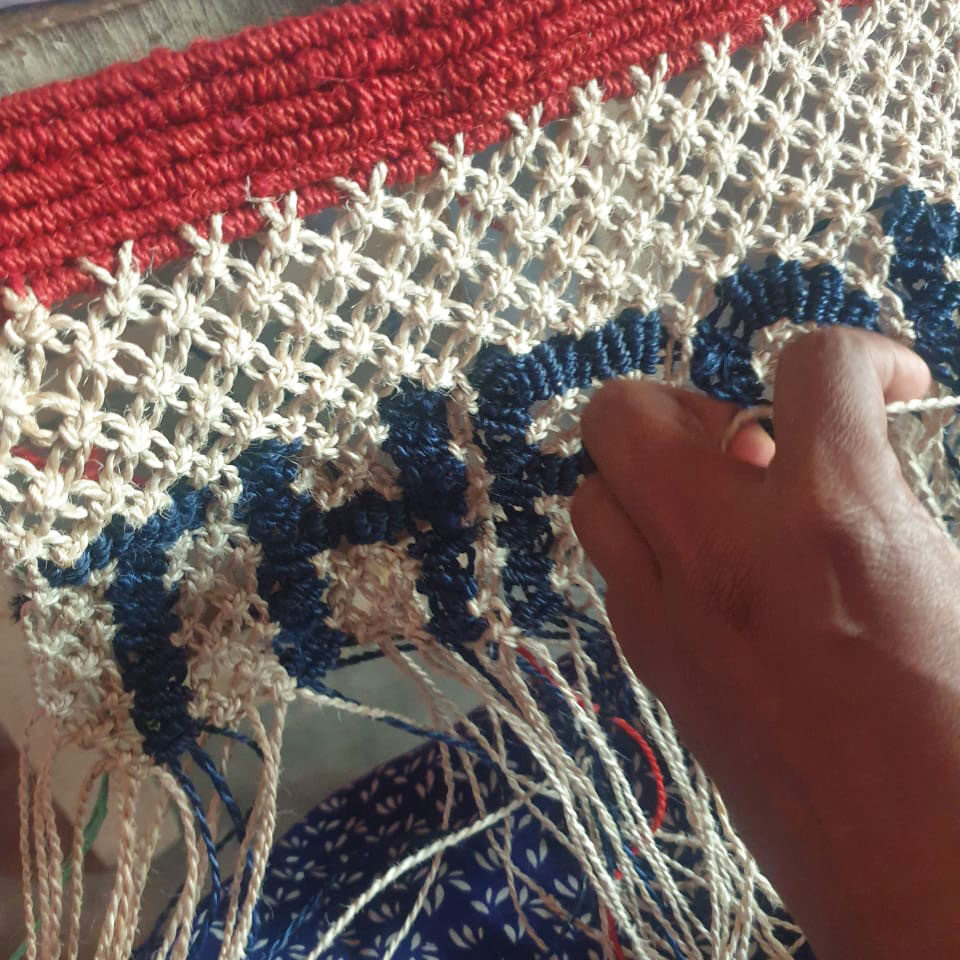Jute – the natural fibre that’s cleaning up fashion
Jute is an incredible material. Known as the ‘golden fibre’, it’s a natural fibre that thrives in tropical lowland areas. The plant is completely rainfed with little need for fertiliser, pesticides or additional energy, and jute products are virtually carbon-free.
What’s more, the jute plant starts absorbing carbon after only a few weeks of growth, thus acting as a carbon sink. It’s also one of the most affordable fibres, used for a number of textile applications.
So I’m thrilled to be developing a range of natural handbags using jute sourced from a sustainable supplier in Bangladesh. You see, jute is not only more sustainable than many other materials used in fashion, it also helps to sustain the livelihoods of Bangladeshi women and their families.
Empowering local artisans, enhancing lives.
My supplier is a family-owned business founded by an amazing woman with a vision to take Bangladeshi heritage and culture to the world, while supporting local communities. Starting with a small team of two artisans, she now leads a factory of over 75 talented artisans, producing beautiful handbags, homewares and table wares, as well as hand-crafted bead work and embroidery.
Employment leads to empowerment, independence and status, and that’s certainly the case for these local women. Led by their inspirational and far-sighted founder, the company has a reputation for being honest, transparent and ethical, including paying fair wages, ensuring gender equality and continuous improvement, as well as being strongly opposed to child labour. They also work to ensure community development by training local artisans and youth and teaching them vocational skills.

A positive impact on people and planet.
As with all of Ethical Edit’s suppliers, this company is passionate about implementing the most sustainable practices possible, by sourcing eco-friendly products and researching best practice and ethical production methods.
Their practices towards positive environmental and social impact includes reducing wastage where and conserving water where possible, using energy-saving light, using renewable materials (including jute and cotton), volunteering within the community and encouraging workers to work at home to reduce travelling time.
Recently, the team has undergone several training workshops to learn natural dyeing techniques using indigo as well as fruit and vegetable dyes – to further ensure their jute products are as natural and sustainable as possible.
I’m delighted to be working with this wonderful supplier – a company that provides the reassurance of integrity and sustainability throughout the supply chain. When you choose jute products from Ethical Edit, you’re helping to create fashion that’s fairer for all: empowering women with fair wages and good lives; and bringing more of this amazing sustainable material to the world.